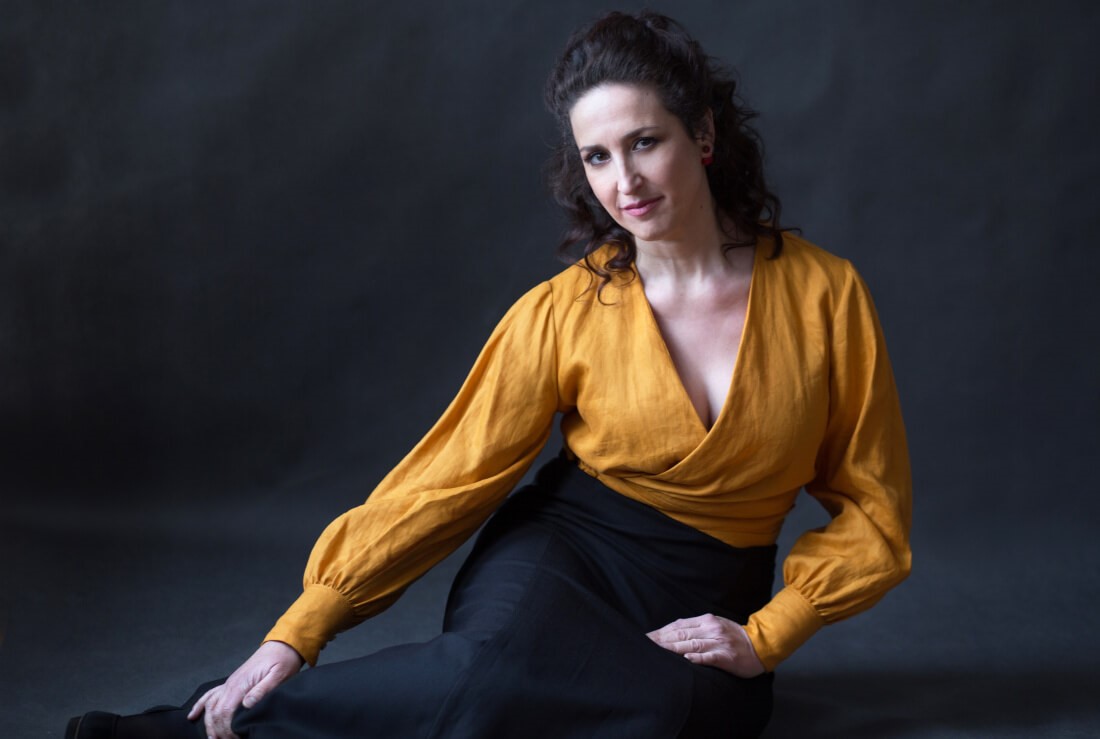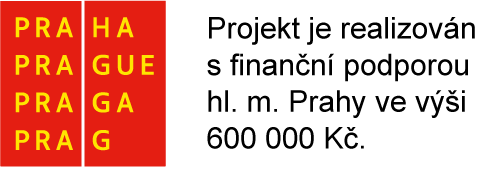Gloires Romaines
Arias, duets and dance suites from operas by G. F. Handel and J.-Ph. Rameau
Artists
-

Chantal Santon Jeffery
soprano -

Vojtěch Semerád
tenor -

Jana Semerádová
artistic director, flauto traverso
COLLEGIUM MARIANUM
Jana Semerádová – flauto traverso, flauto dolce
Małgorzata Malke, Katarzyna Szewczyk – Baroque violin
Andreas Torgersen – Baroque viola
Hana Fleková – Baroque cello
Anna Špelinová – flauto traverso, recorder
Jan Krejča – theorbo
Luděk Braný – double bass
Filip Hrubý – harpsichord
Programme
Georg Friedrich Händel (1685–1759)
Ouverture from Alessandro Severo, HWV A13
Duet „Tra amplessi innocenti“
from Cecilia, volgi un sguardo, HWV 89
Aria „Quando e parto dell᾿affetto“
and „D᾿amor fu consiglio“
from La Resurrezione, HWV 47
Evaristo Felice Dall´Abaco (1675 –1742)
Concerto a più istrumenti in E minor, op. 5, č. 3
Georg Friedrich Händel
Árie „Se pietà di me non senti“
from Giulio Cesare in Egitto, HWV 17
Duet „Caro autor di mia doglia“, HWV 182a
Intermission
Jean-Philippe Rameau (1683–1764)
Arias and dances from Le Temple de la Gloire, RTC 59
Duet „Les flots les ont punis“ from Naїs, RTC 49
Arias, duets and dances from Dardanus, RTC 35
Annotation
Ancient Rome was a bottomless well of inspiration for the creators of Baroque opera, whether themes were drawn from the fates of historical rulers or from the mythological stories in which the Romans had believed. Baroque Rome then attracted musicians from various parts of Europe who were eager to get acquainted with the secrets of Italian music. Among them was Georg Frideric Handel, who spent more than two years in Rome on his Italian study tour and began a successful career there as a composer of Italian vocal music. At Easter 1708, his new oratorio La Resurrezione was performed there, directly under the baton of the famous Corelli. In his later works, especially for London theatres, Handel drew heavily on his personal experience of Italian music and can rightly be called one of the most important composers of Italian opera seria. Arias and duets from his operas will be complemented by the works of an equally successful opera composer, this time in a French environment, Jean-Philippe Rameau, who briefly lived in Italy in his youth. He became acquainted with Italian music mainly in his native France, where one of its promoters was the Neapolitan Michele Mascitti.
This colourful Italian-French programme will be presented by Chantal Santon Jeffery and Vojtěch Semerád, accompanied by the Collegium Marianum ensemble under the direction of Jana Semerádová.
Partners of the concert
With the kind support of the Royal Canonry of Premonstratensians at Strahov and the French Institute in Prague.
Artists

Chantal Santon Jeffery
soprano
Chantal Santon Jeffery is acclaimed as one of the most accomplished French sopranos of the present day. As comfortable in the miniature of a consort song as in the lyric romantic repertoire, she has embodied numerous roles in the opera, from Mozart (Donna Anna, Donna Elvira, Fiordiligi, the Countess Almaviva, Sandrina) to the contemporary repertoire (a unanimous press praised her Lolo Ferrari in the opera of the same name) including Britten (the Governess in Lille Opera’s The Turn of the Screw), Campra (Herminie in Tancrède), Gassman (Stonatrilla in L’opera seria), Purcell (King Arthur, Dido and Aeneas), Bizet (Frasquita in Carmen at the Théâtre des Champs Elysées), Hervé (Mélusine in Les chevaliers de la table ronde), Boismortier (Altisidore in Don Quichotte chez la Duchesse), Haydn (the title role of Armida), Rameau (La Gloire in Le temple de la Gloire in Berkeley) etc.
She has been invited to sing with such prestigious orchestras as Le Concert Spirituel, Les Talens Lyriques, the Orchestre National de France, the Orchestre de Chambre de Paris, I Barocchisti, Les Ambassadeurs, Le Cercle de l’Harmonie, Les Siècles, Opera Fuoco, the Brussels Philharmonic, Pygmalion, the Hong Kong Philharmonic. She has recently performed in prestigious venues in Europe, America, and in Asia.
Among her many recordings (more than 50) are Baroque, Classical, and Romantic French operas and oratorios (often supported by the Fondation Bru and the Centre de musique baroque de Versailles) but also works by Mozart, Martinez, Stradella, Da Gagliano, Purcell, J. Ch. Bach etc.
Recent releases: “Brillez, astres nouveaux!”, a recital of French Baroque opera arias with the Orfeo Orchestra, under the baton of György Vashegyi; Maître Peronilla by Offenbach (in the role of Alvarès) with the Orchestre National de France, conducted by Markus Poschner; Jephté by Montéclair (in the role of Iphise) and Dardanus by Rameau (in the role of Venus), again with the Orfeo Orchestra.

Vojtěch Semerád
tenor
Vojtěch Semerád is a graduate of the Prague Conservatory, the Faculty of Pedagogy of Charles University in Prague (choirmastering) and the Conservatoire National Supérieur de Musique in Paris (baroque violin with François Fernandez). He is a finalist of the Telemann-Wettbewerb International Competition in Magdeburg. He has been trained as a singer since 2010 throughout private lessons (with teachers such as Chantal Santon Jeffery, Peter Kooij, Poppy Holden) and masterclasses.
As a solo singer, Vojtěch Semerád is invited by renowned ensembles such as Les Arts Florissants, Ensemble Correspondances, Wroclaw Baroque Orchestra, Vox Luminis or Huelgas Ensemble, with whom he performs at major international venues and festivals such as Théâtre des Champs-Elysées, Park Avenue Armory New York, Logan Center Chicago, Concertgebouw Rotterdam, Wigmore Hall London, Palau de la Música Barcelona, etc. He has taken part in several opera productions, and has recently sung Histoires Sacrés by M.-A. Charpentier, the role of Acis in G. F. Handel’s Acis and Galatea, the role of Atys in J. B. Lully’s Atys and the role of Pythonisse in Charpentier’s David et Jonathas. He is regularly invited as the Evangelist in passions and oratorios by J. S. Bach.
Vojtěch Semerád is the artistic director of the vocal ensemble Cappella Mariana, with which he performs forgotten works of vocal polyphony of Middle Ages, Renaissance and Baroque era. Today the ensemble is regularly invited to the prestigious festivals a.o. Oude Muziek Utrecht, Laus Polyphoniae Antwerpen, Voices of Passion Leuven, MAfestival Brugge, Tage Alter Musik Regensburg, Innsbrucker Festwochen, Prague Spring and Concentus Moraviae.
He has recorded for Deutsche Gramophon, Naïve, Harmonia Mundi, Passacaille and Supraphon, in total more than 30 recordings, and also regularly records for Czech Radio.
Vojtěch Semerád is also a researcher, focusing on the discovery of 15th, 16th and 17th century vocal music in Central Europe.

Jana Semerádová
artistic director, flauto traverso
One of the most prominent personalities of the international early music scene, flautist Jana Semerádová is a world-class soloist, conductor, musicologist and creator of unique artistic projects. A graduate of the Prague Conservatory, the Faculty of Arts, Charles University in Prague (Theory and Practice of Early Music), and the Koninklijk Conservatorium in the Hague, the Netherlands, she is also a laureate of the Magdeburg and Munich international competitions.
Jana Semerádová is the artistic director of Collegium Marianum and programming director of the concert cycle Baroque Soirées and the international music festival Summer Festivities of Early Music. She undertakes intensive archival research both at home and abroad and is engaged in ongoing study of Baroque gesture, declamation and dance. Many of her unique programmes are built around the interconnection of music and drama. Under her direction, Collegium Marianum stages several contemporary premieres of musical works each year. Jana Semerádová has a number of CDs to her name; her recordings with Collegium Marianum are featured as part of the successful series “Music from Eighteenth-Century Prague” on the Supraphon label, for which she has also recorded her two signature CDs “Solo for the King” and “Chaconne for the Princess”.
Jana Semerádová has performed at leading European concert venues and festivals (such as Bachfest Leipzig, Oude Muziek Utrecht, Musikfestspiele Potsdam Sanssouci, Innsbrucker Festwochen der Alten Musik, Händel-Festspiele in Halle, Festival de Sablé, Prague Spring, Tage Alter Musik Regensburg, Wratislavia Cantans, Centre de Musique Baroque de Versailles, the Konzerthaus in Vienna and Berlin, and Palau de la Música Catalana), collaborated as a soloist with various artists, including Magdalena Kožená, Sergio Azzolini, Alfredo Bernardini, and Enrico Onofri, and regularly performs with the Akademie für Alte Musik Berlin, Il Suonar Parlante, Wrocławska Orkiestra Barokowa, Orkiestra Historyczna and Ars Antiqua Austria.
In 2015 she received her habilitation degree as an associate professor of flute from the Faculty of Music and Dance at the Academy of Performing Arts in Prague. Since 2024, she has been teaching at the Kryszstof Penderiecki Academy of Music in Kraków.
In 2019 she was awarded the prize of the Prague Group of the Society for Arts and Sciences. A year later, Jana Semerádová and Erich Traxler were nominated for the Anděl Awards (category Classics) for their CD “Chaconne for the Princess”. In December 2024, Jana Semerádová was awarded the prestigious French Order of Arts and Letters (Ordre des Arts et des Lettres), at the grade of Knight (Chevalier).




